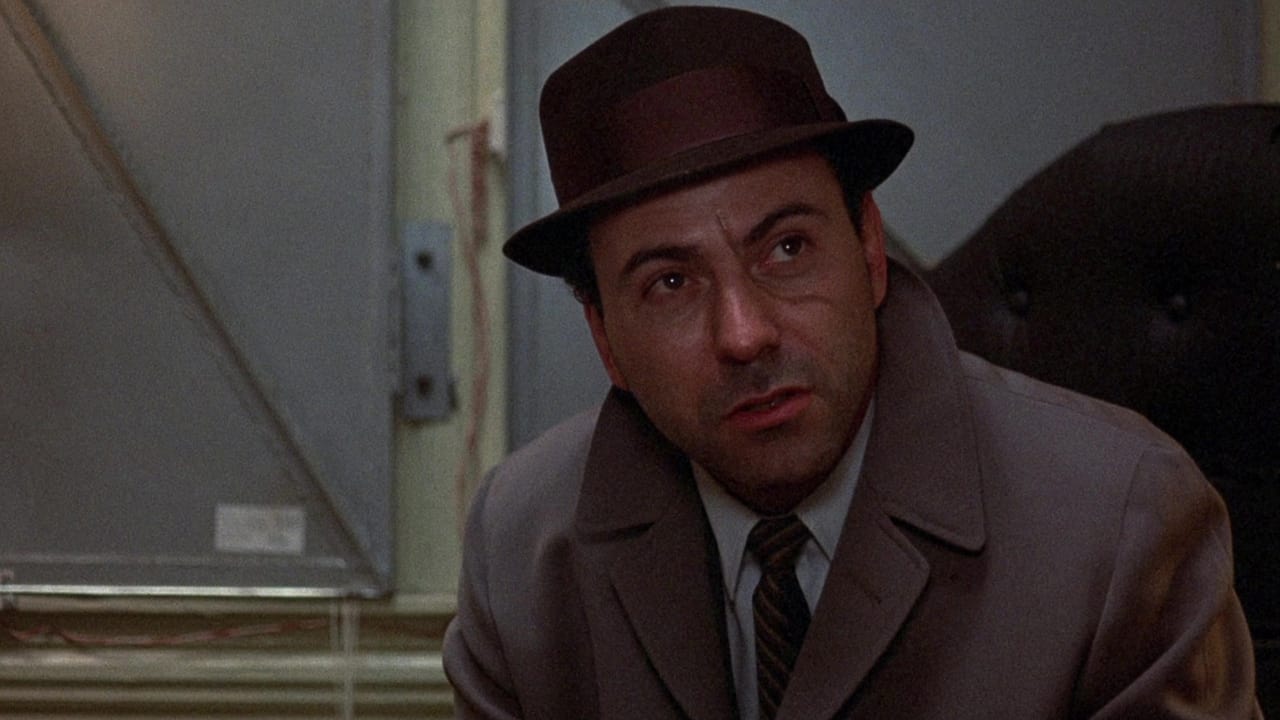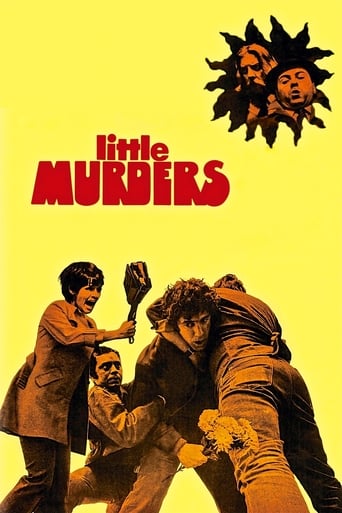

just watch it!
... View MoreJust so...so bad
... View MoreBlending excellent reporting and strong storytelling, this is a disturbing film truly stranger than fiction
... View MoreIt is a whirlwind of delight --- attractive actors, stunning couture, spectacular sets and outrageous parties.
... View MoreComedy about how New Yorkers are coping with pervasive urban violence, obscene phone calls, rusty water pipes, electrical blackouts, paranoia and ethnic-racial conflict during a typical summer of the 1970s.So, this is the sort of film that has a good deal of long, boring parts, but is more than made up for by some of the incredible smart dialogue. Early on, we get a wise discourse about what to say if people are going to beat you up, and what they might assume you to be in return. This speech, by Elliott Gould, is brilliant.But even more brilliant, and the real highlight of the entire film, is a rambling sermon and wedding ceremony from Donald Sutherland, an "existential" minister. His rambling about "love" and "the deity" is not what you expect fro ma minister and this has to be one of Sutherland's greatest roles.
... View MoreAlan Arkin directed this black comedy from Jules Feiffer (adapted from his play) about the violence--and apathy or pacifism towards violence--in society, with Elliott Gould as the zombie-fied hero at the center of the chaos. Even though this is dark-hued material, Feiffer and Arkin mean it to be deadpan amusing, yet the heights they hope to scale haven't weathered the years well. What was circus-like and crazily absurd in 1971 doesn't look so far-fetched anymore, which gives the proceedings a creepy undermining today. Several good moments, fine cinematography from Gordon Willis compensate, also a terrific performance from Vincent Gardenia as Gould's emotionally unhinged father-in-law. However, the film is now a dated product of its time, not the crackpot cartoon-strip intended. Arkin has a cameo, as does Gould's "MASH" co-star Donald Sutherland in an over-extended bit as a hippie priest. ** from ****
... View MoreSort of like a manic cross between a pointless and overrated Harold Pinter play, Ken Russell (minus the sexual stuff), and farce. LM starts off rather badly, with the quasi-beating up of Gould by a group of punks (he should have had all of his bones broken by the time the "cavalry" arrived). Rodd comes down to his aid, but he just walks away, uninterested in helping her when they attack her. That absurd scene set the tone for the following 30 minutes which aren't that great, especially Gould's first encounter with Rodd's parents: that was embarrassing to watch, with rather bad overacting by most involved. Gould's character makes very little to no sense; even if this is meant to be a comedy, there has to be an underlying reality in the characterization for it to be funny/poignant/whatever, but there is barely any in his case. While the other characters are exaggerated, at least it is clear who and what they are meant to represent. This is not the case with Gould's character.Still, as mostly unfunny and absurd as the movie is, there are some highlights, such as Sutherland's wedding monologue, and then, later, Arkin's. The rest of the movie is an uneasy and mostly unsuccessful mix of comedy and drama (the toughest mix to achieve). The problem with the comedy aspect is that barely anything was funny. Some smile-worthy moments, but that's all. Not a good sign in a comedy. Semi-clever one-liners just aren't enough. Additionally, the movie was directed in such a heavy-handed manner that it can barely elicit any laughs or smiles. Arkin's direction is good, stylish even, but not appropriate for a comedy, not even for a heavy satire. Actors constantly shouting out their lines does not make the script any funnier. "Manic, loud humour" is old-fashioned and dull. The transition from farcical dialogue to the overly dramatic scenes of Rodd's murder and the scenes after it, simply does not work. Feiffer, the writer of this muddled script/play, was obviously highly dissatisfied with American society (as any self-respecting Left-winger has to be, the disappointment basically stemming from the fact that Marxism didn't prevail), and on the DVD commentary he says that in LM he was trying to show where America was going, and he concluded that America had now reached that point. Feiffer, the self-proclaimed Nostradamus! He also added that the movie wasn't just about New York and its violence (and other ills) but the country as a whole. There are, of course, HUGE problems with these statements/opinions.First of all, New York was as violent as it was back in the 60s and 70s mainly due to Feiffer's liberal friends, with their soft policies on crime and punishment. Feiffer is from New York, or so he says, but I find it hard to believe that he ever set foot there. After all, the DVD was released after Mayor Giullliani - a Repubican - had cleaned up NY, so what was this nonsense about America "getting there". New York is safer than it's been in many decades - no thanks to Feiffer's Leftist ways of dealing with crime (a slap on the hand for every hard criminal). Feiffer even comments that Gould and the misfit son (and even Gardenia) are victims of this awful, awful American society, hence that their lashing out by killing pedestrians, at the end of the movie, is "self-defence". No kidding, that's what Feiffer called it! That sounds just like the kind of idiotic drivel other leftists say when they try to justify terrorists as "freedom fighters".Secondly, how can anyone use New York - of all places - to portray the "state of the nation"?? New York is very atypical for most of the rest of the country, hence the film's message was doomed from the moment Feiffer decided to place the setting in NY. Perhaps Feiffer wasn't lying about having been born and having spent all his life in NY. And I mean, ALL HIS LIFE. Perhaps he never visited other parts of the States, hence so very naively thought NY was how it was in all of the 50 states. The moral of the story rings hollow. This seems to be yet another in a long line of scripts written by dissatisfied, neurotic liberals who could never get over the fact that America chose Capitalism over Socialism. Such people/writers have nitpicked through EVERY pore of American society, looking for the tiniest (and less tiny, more obvious) faults, while raising their hypocritical hands and shouting "see?? see?! I told you it was no good!". However, Capitalist America is still thriving so I have no idea what Feiffer is talking about. Sure, every society has its ills, but if someone is seeking for a perfect society then he'd be best served by taking heavy drugs and day-dreaming about Utopia, a non-existent place.Overall, a message (or messages) that holds no water in the real world, in a mostly unfunny comedy. Nevertheless, the movie is quite watchable. It is unpredictable and fairly interesting (aside from the first third).This movie is based on a play that flopped on Broadway. But LM is critical of U.S. society so obviously it was irresistible for Hollywood's producers and other "intelligentsia"...
... View MoreSome movies are a journey you must commit to, no matter what. And Little Murders is this sort of film. Halfway through it, I was thinking, why am I watching this junk? But the quirky, engrossing performances by the uniformly skillful cast kept me in the story, as bizarre as it was. I wasn't sure I liked where the film was taking me, but I kept agreeing to keep watching, sometimes scene by scene. But as Elizabeth Wilson utters (or actually thinks) the film's final line, I finally "got it." It was a trip worth taking, and the destination made it worthwhile, even though it covered some pretty rough territory along the way.
... View More